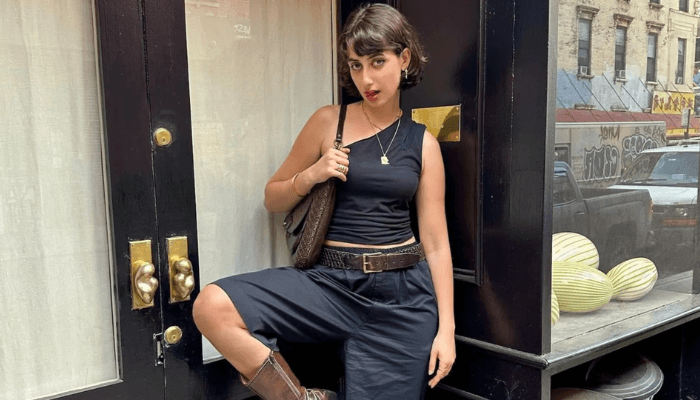Meet Rama Duwaji, the first Gen Z First Lady of America’s largest city
When Zohran Mamdani took the stage in Brooklyn to celebrate his historic victory as New York’s new mayor, all eyes were on the man who had just made history. But standing quietly beside him, smiling softly as confetti fell, was a woman now destined for a historic title of her own — Rama Duwaji, the city’s first Gen Z first lady.
At 28, Duwaji is not only the youngest person ever to hold the unofficial role but also among the most intriguing. A Syrian American artist and illustrator, she has spent years creating striking, politically charged artwork about identity, sisterhood, and resistance. Yet unlike many political spouses before her, she has chosen to stay largely out of the spotlight.
An artist before anything else
Born in Houston, Texas, to a family of Syrian descent, Duwaji spent her childhood between the United States and Dubai. She studied communication arts at Virginia Commonwealth University, beginning at its Qatar campus before transferring to Virginia. Later, she earned a master’s degree in illustration from the School of Visual Arts in New York City, the same city she now calls home.

Her illustrations, often rendered in black and white, explore Arab culture, women’s rights, and displacement. They have appeared in The New York Times, The Washington Post, the BBC, and London’s Tate Modern. One of her recurring themes is the Middle East — from the suffering in Gaza to the forgotten conflicts in Sudan. “An artist’s duty,” she once said, quoting Nina Simone, “is to reflect the times.”
Read also: Gen Z is less about conformity and more about crafting a personal identity
On her professional website, she writes that her work examines “the nuances of sisterhood and communal experiences.” Her art, deeply personal yet unmistakably political, has built her an online following of more than 200,000 admirers.
Meeting Mamdani
Duwaji met Mamdani on the dating app Hinge in 2021. “So there’s still hope for dating apps,” Mamdani joked in a recent interview. The two quietly got engaged in Dubai in 2024, where her family lives, celebrating with a traditional nikah ceremony overlooking the skyline. A few months later, they married in a simple civil ceremony at the New York City Clerk’s Office.
“Three months ago, I married the love of my life, Rama,” Mamdani wrote in May. “Rama isn’t just my wife, she’s an incredible artist who deserves to be known on her own terms. You can critique my views, but not my family.”
While Duwaji rarely appears at public events, she reportedly played a behind-the-scenes role in her husband’s campaign helping to design its bold colour palette and minimalist font. The now-familiar orange, yellow, and blue branding that became the visual signature of “Team Mamdani” bears traces of her artistic hand.
Read also: Experts urge Gen Z to blend AI skills with human intelligence
A quiet but defining presence
Despite her creative fingerprints on the campaign, Duwaji avoided the spotlight throughout the election. She skipped rallies and media appearances, rarely posted about the race on social media, and declined all interview requests.
Duwaji’s influence is hard to miss. Her husband, now New York’s first Muslim mayor and the youngest in more than a century, often draws on themes familiar in her art, community, solidarity, and justice.
Reflecting the times
In interviews, Duwaji has said that art, like politics, carries moral weight. “I believe everyone has a responsibility to speak out against injustice,” she told YUNG magazine. “Even creating art as a refuge from the horrors we see is political to me. It’s a reaction to the world around us.”
Her works often feature Palestinian women, displaced families, and protest imagery motifs that have drawn both admiration and controversy. But Duwaji, who now lives in Brooklyn, rarely engages with critics online. “All I can do is use my voice to speak out,” she said in 2022. “With so many people being silenced by fear, art is my way of pushing back.”
Redefining the role
As she prepares to move into Gracie Mansion, Duwaji joins a new generation of public figures who see political life through a creative, socially conscious lens. Whether she chooses to take on formal duties or remain behind the scenes, her mere presence as a Syrian American Gen Z artist in one of the world’s most visible cities is already a statement.

